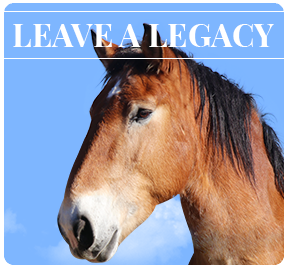HELPING OUR VETERANS
BILLIE STANTON
Tucson Citizen
September 24, 2008
AMADO – Way out in the boonies between this tiny town and Elephant Head Rock, wonders are being wrought with depressed, dispirited and disabled war veterans.
One peek at their progress would inspire anyone to put away the Prozac and pick out a Pomroy pony.
For here at the Equine Voices Horse Rescue and Sanctuary run by Karen Pomroy, formerly forlorn veterans are finding joy, peace and a new zest for life.
Mike Baugus, a Gulf War veteran, retired from the Coast Guard in 2001. But a year ago, a car crash broke every one of his bones from the waist up – and his spirit, too.
“He doesn’t have a lot of short-term memory,” says his wife, Kathy, who became his full-time caretaker. “He was really depressed.”
You wouldn’t know it today, as he nears completion of the 12-week Equine Voices Veterans Therapy Program, sponsored and financed by the Veterans Administration in Tucson.
“This has been the best program they’ve come up with,” Kathy Baugus says. “It brought him out of sitting on the couch, staring at nothing. Now he talks about what he’s going to do next week. And he wants to get horse property and rescue horses.”
Mike is happiliy grooming Chocolate, a gentle old horse that follows him everywhere.
The veteran cracks jokes all the while. When an absent program participant’s name comes up, Mike quips, “We can’t talk bad about him because he’s not here. Let’s talk bad about him when he comes back.”
Juemell Ballou, an Air Force veteran of the Gulf War, is in her wheelchair, leading Spirit while volunteer psychiatrist Mike Kuntzelman supervises.
Her wheelchair sometimes gets stuck in the sand. So Larry Knowles of Beaudry RV has donated a $4,000 golf cart to eliminate that problem.
Asked about the unusually mellow horses, Pomroy says, “We’re only using horses I know are completely safe. Spirit is bombproof. And Chocolate is 31 years old – and perfect for grooming.”
Juemell, a stroke victim who stays in an assisted-living facility in Tucson, seems glum before her horse therapy gets under way.
“I feel like an alien on the planet after having the stroke,” she says. “I’m just existing on a daily basis.”
Later, after cruising the grounds with Spirit in tow, Juemell is asked if she really likes horses.
“I don’t like them,” she admits. “I love them. I’ve learned a lot about horses here – how to read their ears, their body language. Since I had the stroke, on Jan. 19, 2005, this is really the only thing that gets me out of my hell.”
Tears fill Pomroy’s eyes. “It’s very emotional, seeing the progress,” she says. “What we do here is build these relationships. This partnership.”
That bond builds the veterans’ confidence, decreases depression, helps them focus on one task and revs up their self-esteem. So says Pomroy. But clearly, the veterans’ friendship with Pomroy also is key to their progress.
Her affection and reverence toward them is genuine. And as Pomroy reflects on the mistakes made during Vietnam – by the government and civilians – she gets excited about the prospect of helping veterans just returning from Iraq and Afghanistan.
Long known for seeing the potential in horses that others planned to slaughter, Pomroy now extends that spirit of caring and salvation to those who have suffered the hell of war.
Thanks to Pomroy – and to the VA of Southern Arizona – our men and women of the military are receiving the boost they richly deserve.
VAL CAÑEZ/Tucson Citizen
Billie Stanton is the proud and grateful daughter of a World War II combat veteran.
To view the original article and photos, click here.






